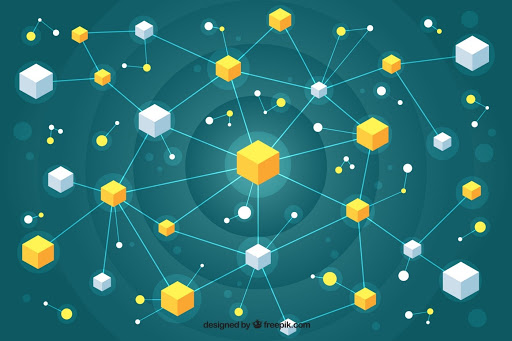Your daily trend radar - innovative startups, emerging trends and business ideas you don’t want to miss out. Sign-up and always be ahead.

Intro

Good morning and Happy Monday! 🥳
We’ll try something new this week. Instead of featuring a cool startup each day, we will do a micro knowledge series on blockchain and crypto. Let’s start with the basics of the craze: The mysterious blockchain! And as bonus: Three ideas that you could start building out on blockchain.
Tech Snippets
🇹🇷 Turkey bans Crypto: Starting April 30, the Central Bank of Turkey is banning the use of cryptocurrencies for payments. Turkish authorities have been trying to control payments; PayPal has already been banned for 5 years in Turkey. Crypto assets are heavily used as value storage in Turkey, where the Lira has lost 34% against the dollar since 2019. Deep Dive here →
🐶 More Robo-Dogs coming: Have you been thinking about getting a robotic dog lately? You know, like the one that the New York Police uses? Unfortunately, those are expensive. The Boston Dynamic dog comes with a hefty price tag of $75,000. However, you could buy a Chinese robotic dog like the Unitree A1 instead. Granted, it’s uglier than the American dog, but you can get it for just $999 instead. Deep Dive here →
Micro Knowledge + Business Ideas
What exactly is blockchain?

Source: Freepik.com
What is a blockchain: While blockchain appears to be complicated, its core concept is relatively straightforward: It’s an ever-growing list (chain) of data records.
Step back: Usually, data in databases is stored in a table - like, you know, Excel, for example. Database entries are independent: Delete a line, and no one will notice.
How is blockchain different: Instead of a table, blockchain organizes data into records called blocks. Each block includes a specific reference to the last chain element. Thus, a blockchain is pretty immune to data alteration. If you want to change a block in the chain, you need to change all subsequent blocks.
Bottom line: A traditional database organizes information into tables, while a blockchain organizes information into linked ‘blocks’.
Decentralization: There is another significant difference between a traditional database and a blockchain. A blockchain is usually decentralized (and thus often public). So the blockchain is stored on a network of computers.
Chain + Decentralization = Transparency: Since the data blocks are logically chained together and publicly accessible, anyone can inspect and validate transactions. As a result, blockchain can be the foundation for a distributed digital ledger that tracks transactions between two parties safely and indefinitely.
What is this good for: Cryptocurrencies like Bitcoin and Ethereum are, of course, the most well-known blockchain applications. The blockchain eliminates the possibility of a digital currency being used twice — that’s almost impossible with blockchain.
Advantages of blockchain:
- New: No centralized authority is required to implement a distributed ledger.
- Trust: Due to decentralization, any participant can audit and verify transactions on the blockchain.
- Cheap: Verification of transactions is relatively inexpensive.
- Stability: Decentralization eliminates the possibility of a single point of failure, ensuring that data cannot be easily stolen, lost, or manipulated.
- Easy: The technology is easy to understand and implement.
Disadvantages of Blockchain:
- Slow: Blockchain transactions may become sluggish, depending on the implementation.
- Energy: Chaining blocks require the power of calculation. In turn, this requires energy and becomes a crypto problem.
- Early: Technology is still in its infancy, and evolving and standardizing might take a long time.
Blockchain technology has numerous applications. Here are a few ideas to get you thinking about potential business opportunities:
Decentralized customer loyalty platforms: eCommerce will benefit from blockchain incorporation once more by creating groundbreaking customer loyalty programs. You can either create your token or use one that already exists to reward consumers for product reviews, recommendations, purchases, and other activities. When you make your token, you can use it to exchange for items in your shop or other shops if you use pre-existing tokens.
Decentralized / crypto crowdfunding website: One of the future Bitcoin business concepts is to start a crypto-currency crowdfunding company and introduce crypto fundraising into the real world. Users can finance innovative projects with different kinds of crypto-monetary products over the network, and developers can get funding from the group.
Decentralized cloud storage solutions: The distributed ledger is ideal for storing sensitive data while guarding against forgery, unwanted updates, and data loss due to hacker attacks. You may also allow consumers to rent out surplus storage space on a peer-to-peer basis as a more sophisticated alternative.
Get smarter in just 3 minutes
Your trend radar - innovative startups, emerging trends and business ideas you don’t want to miss out. Sign-up and always be ahead.
